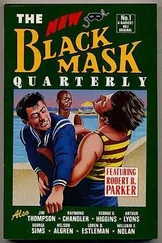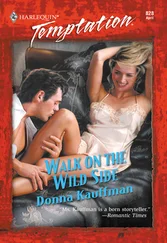On the morning he made his first timid hundred dollar killing, Fort left the chops for other cooks to fry. Five hundred, eight-hundred – twelve-hundred dollars! He had never in his life been worth so much.
He developed cunning. Four thousand, eight thousand – the wind was behind him now but he was afraid to move out of his small furnished room for fear of breaking the magic. Twelve-thousand – fifteen-thousand – at eighteen he thought of actually buying a Stutz. When he’d run up eighteen thousand he resolved to pull out at twenty-five. The bottom had to fall out, he sensed. He wouldn’t be caught trying to make a million.
He made his limit in a single operation – then realized that stopping now would only be to throw away another twenty-five grand. At fifty he would surely stick. Every day he thought of that Stutz.
At forty-two thousand he bought himself the loudest swimming trunks in Coral Gables and showed himself in the sun at last, feeling suddenly half kindly toward other dollar daddies. Why hold it against a man because he was born in New York? A New Yorker could be a good American too.
He spent three days haggling over the price of a Model-T that he drove proudly back to his furnished room at last, and proudly mounted the hot dim stair for the final time. On the table a letter reported that his forty-two thousand was unnegotiable dust.
The sleeping till noon and the sherry, the port and the Stutz and the linen, all had been in his hands and all had slipped through. Now he would never give any waiter orders. Now he would never once sleep past seven.
Fort walked through the curious ruins of a future that never would be, through old never-was cities. The great million-girded metropolises fallen to decay before anybody had laid a brick. The grand hotels, the gleaming lobbies, the fountained parks, where now there was nothing but grass and cinders along the Southern Railway’s right of way.
Walked the little midnight towns, remembering the dark wine and the light; hearing his own heels ring. Thinking still how it might have been to walk at morning in a garden of his own.
And find her lying on her side in a striped hammock, in a dress so sheer the softest breeze rippled it and half-pretending sleep. He would rock her gently, there would be no need of words. Only her waking smile and her drowsy hands lazily slipping the buttons of her blouse to please him.
At midnight in the never-was towns hearing his own heels ring.
Or in the steaming New Orleans night, heard laughter faint yet still undying – dark men and fair women going at it again in the heart of downtown Gomorrah.
Then block after block the big freckled man, so stooped, spavined and drooping, wandered the lovely New Orleans night till he found an ice-cart. Then would sniff the ice in the cart’s single flickering flare, holding two pennies tightly as a child, this financial counsellor nearly six and a half feet high. Was the chocolate syrup really fresh? No syrup but chocolate could assuage his self-pity. Had it been made that very morning? At last he would venture one slow suspicious lick before finally letting his pennies go. He just wasn’t taking chances any more.
One warm night Dove went along to help him find an ice-cart with proper chocolate, and that night the first lick convinced him. He turned and beamed down on Dove – ‘Lend me two more cents, goodbuddy’ – and held out the ice to the vendor – ‘Make her a double , goodbuddy!’
That night the chocolate must have been just right.
Though himself without manners enough to carry grits to a bear, Fort was ashamed of shabby companions. Above a cup of chicory coffee he would study Dove so steadily that the boy would begin to wonder what he could have done wrong so soon in the day with the sun scarcely up over Melpomene Street.
‘Your whole family eat with their hats on?’ Fort finally asked.
Dove set his straw skimmer to one side of his plate.
‘Never heard of hat racks,’ Fort commented bitterly to the bitter window.
‘Your whole family drink out of the saucer?’ he asked.
‘I like coffee poured out in the sasser,’ Dove explained firmly. ‘Would you kindly pass me the toastes bread? I like it better with a touch of long-sweetenin’, but since there aint no long-sweetenin’ I’ll just give it a touch of the coffee in my sasser.’
Fort lived in a welter of unwashed socks, cigarette butts, icesticks, Bull Durham and strewn want-ads. What he was through with he tossed on the floor and never washed a dish.
‘Got the megrims again from eatin’ too light,’ he accused the human race in general and Dove Linkhorn in particular. ‘So dern hongry if I went out in the sun I’d be prostated like a dog.’
‘There’s a loaf of store bread on the fireboard, Fort,’ Dove told him.
‘I’d as soon let the moon shine in my mouth as to eat light bread,’ Fort spurned the baker’s common loaf.
‘Well,’ Dove thought it all over a minute, ‘light bread’s better than nothin’. I’ve tried both.’
But Fort, moved by the vision of himself prostrated like a dog with people stepping over him, rose and announced, ‘Turnin’ over a new leaf – takin’ care of Number One! ’
And left in a rush to start taking care of Number One.
‘I do believe hard times is crazyin’ him,’ Dove told Little Luke later.
If Fort cast gloom wherever he went, Little Luke was a man whose life was one long yak. A go-getter with a little pug face like a rouged pekinese and a breath to cripple a kitten. ‘I’m unfinancial for the moment,’ he never blamed anyone but himself for being broke – ‘I was selling holy stones for luck and like a fool
I sold them all. Didn’t keep a single one for myself. Carelessness, carelessness.’
‘I don’t believe in nothing like that,’ Dove told him, ‘and wouldn’t buy one from a stranger if I did.’
Luke always had a commission coming in, a percentage going out and an urgent transaction in the offing.
The offing was in a shambling gin mill called Dockery’s Dollhouse, down in the district where all his strange business was done. Others said gin was a weakness with him, but Luke had a different name for it.
He called it wanderlust. Wherever he went some Miss Jane or Miss Molly pled with him to settle down with her on some fine old Southern estate. Luke would put her affairs in order, assuaging her fears by day and her lusts by night, until she’d surprise him preparing his blanket roll – they all went hysterical on him then. If he left her now she’d kill herself. Things had gotten so bad he’d taken to sneaking off in the middle of the night.
‘That part I can readily believe,’ Fort would comment.
‘Met Miss Molly at a Memphis candy-breakin’ ’n she treated me like I was somethin’ on a stick. Had this fine old home in Greenville and a restaurant chain – oh the sweet potato pie that woman put out!’ – Luke went lying blithely on – ‘the sentimental little fool. When she seen I had my mind set on leaving she give me five-dollar meal ticket good in either Memphis or Atlanta.’
‘Was that before or after she killed herself?’ Fort inquired mildly.
‘I’m plenty worried about her,’ Luke implied darkly.
And went on the nod right where he sat, his Bottled-in-the-Barn just within reach.
‘Watch out for that carnival-talkin’ jailbird,’ Fort warned Dove the moment Luke began to snore. ‘He’ll talk a country boy like you into some fool operation and you’ll be the one to take the rap, mark my word. Watch out, goodbuddy.’
Goodbuddy promised he’d watch out.
As soon as Fort slept Luke opened one glimmering eye.
‘Ssssss – Tex ,’ he whispered to Dove – ‘Watch out for that piss-complected faker. He’s been in every clink between Miami and Houston. He hollered on me so he’ll holler on you. Watch out, Tex.’
Читать дальше












